EU's Mora To Visit Tehran Saturday To Discuss Nuclear Talks
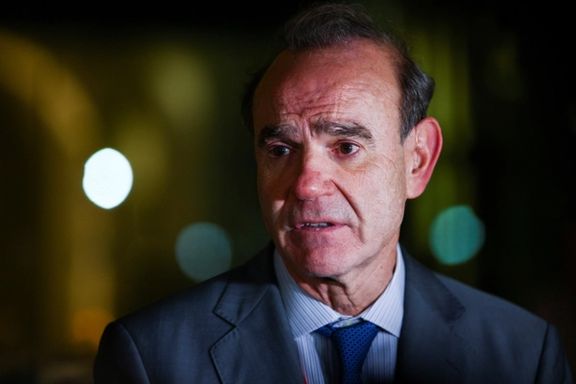
The European Union coordinator for Iran nuclear talks, Enrique Mora, will travel to Tehran on Saturday to discuss unresolved issues, he tweeted late Friday.

The European Union coordinator for Iran nuclear talks, Enrique Mora, will travel to Tehran on Saturday to discuss unresolved issues, he tweeted late Friday.
“Travelling to Tehran tomorrow to meet Bagheri Kani. Working on closing the remaining gaps in the Vienna talks on the JCPOA. We must conclude this negotiation. Much is at stake,” .
The nuclear talks that started almost one year ago in Vienna ended inconclusively earlier in March, after Russia demanded exemption from Ukraine sanctions in its dealings with Iran. However, there are still unresolved issues between Tehran and Washington.
Iran is reportedly demanding that the United States remove the Revolutionary Guard, IRGC, from its terrorism list and the Biden Administration appears hesitant.
The prospect of such a move has galvanized opposition among US lawmakers, especially Republicans, who were skeptical or opposed to the revival of the 2015 nuclear agreement, JCPOA. Former president Donald Trump withdrew from the agreement arguing that it will not stop Iran from acquiring nuclear weapons.
US National Security advisor Jake Sullivan travelling in Europe said on Friday that if diplomacy with Iran fails, Washington is ready to increase pressure on Tehran in coordination with its European allies.
As the current stalemate continues, Iran-backed Houthi forces in Yemen launched drone and missile attacks against oil installations in Saudi Arabia on Friday, causing damage.
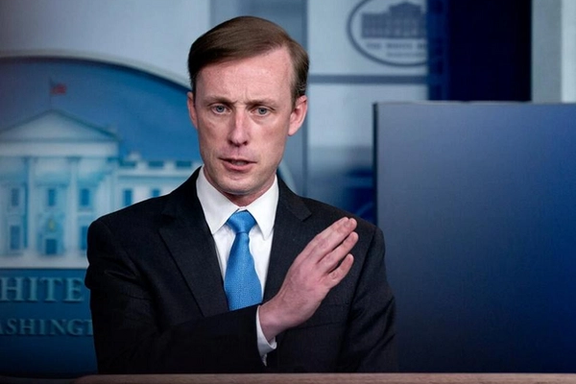
The United States will work with allies to increase pressure on Iran if diplomacy fails, White House National Security Adviser Jake Sullivan said on Friday.
The talks were close to an agreement until Russia made last-minute demands of the United States, insisting that sanctions imposed on Moscow over its invasion of Ukraine would not hurt its trade with Iran.
US officials have become more cautious lately in their assessment of efforts to revive the 2015 nuclear accord between Iran and world powers, which would curb Tehran's nuclear program in exchange for lifting tough sanctions on Iran's economy.
Substantial progress has been made in resolving several issues necessary for Washington to come back to the deal "on a compliance-for-compliance basis," Sullivan told reporters aboard Air Force One en route to Poland with President Joe Biden.
"There still are issues left. There still is work to be done," he added. "We are still seeking a diplomatic outcome here that puts Iran's nuclear program back in a box. Of course, if diplomacy doesn't succeed, then we will work very closely with our international partners to increase the pressure on Iran."
Iran is reportedly insisting that the US should lift a terror designation imposed on its Revolutionary Guard. The Biden Administration apparently has considered the demand, which has let to domestic criticism, particularly by Republicans.
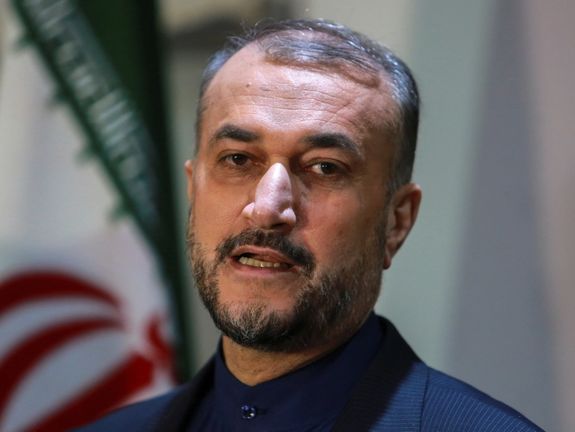
Still expressing optimism over the Vienna nuclear talks on Thursday, the Iranian foreign minister has reiterated that Tehran would not surrender its "redlines".
At a meeting with the Lebanese Parliament Speaker Nabih Berri in Beirut Thursday evening, Hossein Amir-Abdollahian said Iran is serious about achieving a “good, lasting deal” in the negotiations.
He added that a prolongation of the process was not acceptable to Iran and that Iran would not cross its own red lines but did not elaborate on what Iran's redlines are, but reports in the past two weeks indicate this is related to Iran's demand that the US should remove the Revolutionary Guards (IRGC) from its list of Foreign Terrorist Organization (FTO).
“We are optimistic and at the same time serious about the outcome of the Vienna talks. In our view, the [possible] agreement should be such that the removal of [US] sanctions is done maximally,” he said at another meeting in Beirut with Lebanese Prime Minister Najib Makati.
Prospects of delisting the IRGC have raised many objections in the US and the tone in Washington is no longer as optimistic as before.
Austrian journalist Stephanie Liechtenstein in a tweet Thursday said her sources who ten days ago seemed rather confident that a deal could be struck to restore the JCPOA now "sound increasingly pessimistic." "This is yet again another extraordinary turn of events, especially if you think just how close they are," she said.
The Trump administration listed the IRGC as a terrorist organization as part of his ‘maximum pressure’ after he withdrew from the JCPOA in 2018.
Some pundits maintain that listing of the IRGC as a foreign terrorist organization is only symbolical because the title Specially Designated Global Terrorists (SDGT) was merely added to a host of other designations of the IRGC without introducing newer or more effective sanctions. The IRGC and all individuals and entities related to it, they argue, were already sanctioned under executive orders 13382, 13553, 13606, 13224 between 2007 and 2017 as well as CISADA and other legislations in connection with human rights, missile programs, and terrorist activities.
Russia's role in a restored JCPOA has also become a matter of contention and possibly an obstacle to a quicker conclusion of the talks.
It seems The Biden Administration has agreed with a Russian demand to be exempted from Ukraine sanctions in its nuclear cooperation with Iran, which besides facilitating the restoration of the JCPOA would involve lucrative deals to expand Tehran’s civilian reactor.
Biden Administration officials speak about the Russian role only in terms of its traditional mediation to take enriched uranium out of Iran, but what Moscow has demanded goes further than that
The Telegraph, quoting Western security sources, reported on Wednesday that Iran has made a secret deal with Russia to help it evade Western sanctions related to Ukraine, in exchange for Moscow’s help to conclude a nuclear deal with the West, which can free up tens of billions of dollars in frozen funds and trade opportunities for its beleaguered economy.
But there is opposition even from some Democrats. "I don’t think Russia is at the table in a legitimate or honest way. I think they are looking at ways to get around the sanctions," Democrat Senator Kirsten Gillibrand told Fox News Thursday. "I think we have to be very careful in not negotiating against ourselves, especially with what Russia is doing against Ukraine."
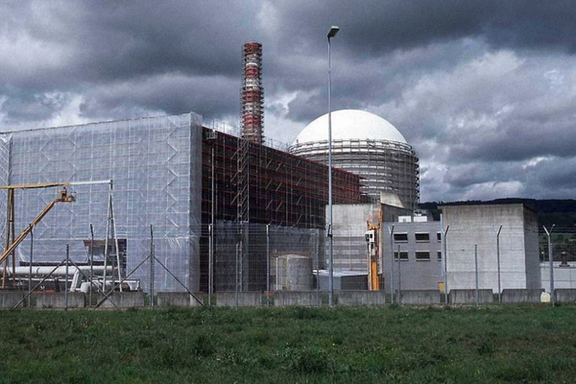
Iran’s nuclear electricity generation declined 20% year-on-year to below 4.4 terawatt-hour (TWh) during last Iranian fiscal year, ended March 21.
According to official statistics reported by Fars News affiliated with the Revolutionary Guard, the country’s nuclear electricity generation has been declining since 2017, when it reached the peak level of 7.5 TWh electricity generation.
Iranian official sources do not offer any explanation for the decline in production. Iran owes Russia hundreds of millions of dollars for the Bushehr reactor, and it is not clear if this has been impacting the reactor’s operations and maintenance.
After two decades of delays, Russian Rosatom finally inaugurated Iran’s only nuclear power plant, Bushehr, ten years ago.
Neither Iran nor Rosatom have reported the financial expenditure of this project, but Iranian former vice president Es’haq Jahangiri said in 2020 that around $8.5 billion was spent on this project.
Developing the Bushehr nuclear power plant (NPP) with 1000 MW capacity at this cost made it one of the most expensive nuclear power plants in the world. For instance, South Korean KEPCO has been developing the United Arab Emirates’ Barakah NPP with 6500 MW capacity since 2012 and its two reactors with 2800 MW capacity are already in operation, with two more reactors being built. The cost of building the reactors is estimated at just above $20 billion, much cheaper than Bushehr NPP.
On the other hand, official figures show that the cumulative electricity generation from Bushehr nuclear power plant during last ten years is about 47.7 TWh, worth about $5 billion. That is far behind its $8.5 billion capital expenditures. In fact, around 20 percent of power generated was used in the nuclear plant itself and 80 percent reached the power grid.
Bushehr nuclear power plant produced only 1.25% of the country’s electricity during last fiscal year, ending March 20, 2022.
Russia and Iran have started negotiations on building two more reactors with 2,000 MW capacity for a total of $10 billion. This price tag is also much too high, compared to KEPCO’s reactors for UAE with a cost of $20 billion for 6,500 MW capacity.
The issue of Russia’s involvement in Iran’s civilian nuclear reactor was long kept separate from its controversial nuclear program involving uranium enrichment that led to major international sanctions a decade ago. But this month as Iran and the West reached the final stages of a new round of talks in Vienna to revive the 2015 nuclear agreement, JCPOA, the Russian role in building reactors for Iran became entangled with the non-proliferation talks.
As the West imposed sanctions on Moscow for its invasion of Ukraine, Russia demanded an exception from the United States on March 5 to continue its activities in Iran unhindered. After a few days of behind the scenes talks, the Biden Administration apparently agreed amid an ever-tightening sanctions regime against Russia. This generated strong domestic opposition, mostly by Republicans and some Democrats, who were already skeptical about the nuclear talks with Iran.
They argue that restoring the JCPOA, abandoned by former president Donald Trump in 2018, is not worth giving an exception from Ukraine sanctions to Russia.
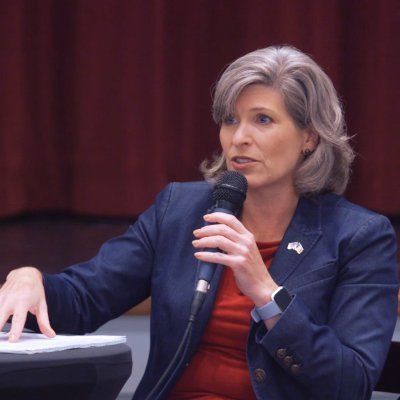
US Republican Senator Joni Ernst has joined many other lawmakers calling on President Joe Biden to leave the Vienna nuclear negotiations with Iran.
In a tweet on Thursday, Ernst said that “the Iranian regime’s funding of terrorism and hatred of the United States has not changed”.
Reviving the 2015 Iran nuclear deal remains uncertain despite earlier progress US officials reiterate, as the issue of delisting Iran's Revolutionary Guard (IRGC) as a terrorist organization remains unresolved.
Earlier, White House national security adviser Jake Sullivan said, "We've made progress over the course of the last several weeks. There are still some issues left", adding that whether there would be a closure or not was unclear.
The number of lawmakers and former officials from both sides of the isle who are urging the Biden administration to walk out of the talks has been growing in recent days.
Spearheading the efforts are Republican lawmakers who have issued numerous statements and letters to stop Washington from removing the IRGC from the US list of foreign terrorist organizations in the framework of the new agreement.
They say the IRGC is a terrorist organization that is not going to change its ways and stop destabilizing the region, and a nuclear deal with the Islamic Republic that lifts sanctions would simply release money for Tehran to support its proxy militants in the region.
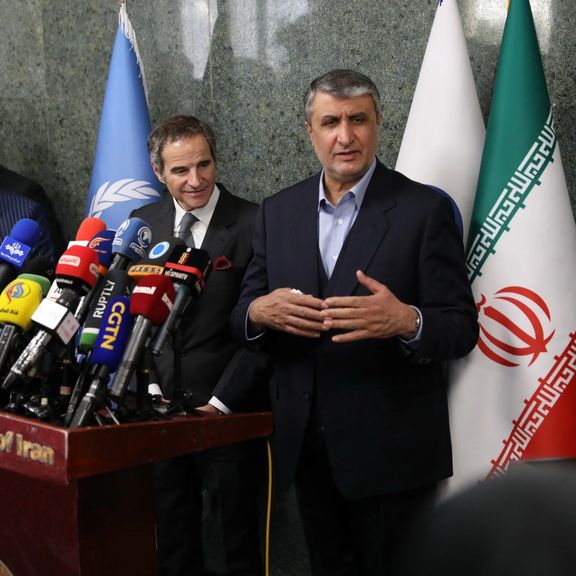
The Atomic Energy Organization of Iran says the country hasn’t tied the activities of its atomic program to the ongoing Vienna talks aimed at reviving the 2015 nuclear deal.
AEOI head Mohammad Eslami said on Wednesday that the Islamic Republic is carrying out its operations in the nuclear field according to its plans.
Eslami also stressed that the US needs to take political decisions to return to their commitments under the Joint Comprehensive Plan of Action (JCPOA), as the nuclear accord is officially known.
“There is no question regarding [Iran’s] return to its commitments under the deal as Tehran fully fulfilled its obligations, while the other side did not keep its end of the bargain,” he said.
“If they want to fulfill their obligations fully, we will take action in accordance with their measures and will reach an agreement,” Eslami added.
Iran’s nuclear chief also announced that on Iran’s National Nuclear Technology Day, on April 9, the country will unveil its "Comprehensive Strategic Development Document for the Nuclear Industry,” along with its latest nuclear-related achievements in the fields of health, agriculture and food irradiation.
Eslami didn’t mention whether Tehran had provided answers to the International Atomic Energy Agency (IAEA) on issues raised by the UN agency in a November 2021 report, including regarding concealed nuclear sites and traces of illicit nuclear material.
Following a visit by IAEA Director General Rafael Grossi to Iran earlier this month, Tehran agreed to provide written explanations to clarify the issues regarding three sites no later than March 20, 2022.